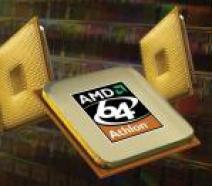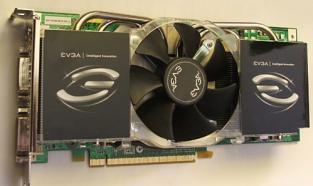OOPS! You forgot to upload swfobject.js ! You must upload this file for your form to work.
Licensing AMD technologies can only be an auxiliary source of income
![]()
|
xtreview is your : Video card - cpu - memory - Hard drive - power supply unit source |
|
|||
|
|
||||
 Recommended : Free unlimited image hosting with image editor
Recommended : Free unlimited image hosting with image editor
|
POSTER: computer news || LICENSING AMD TECHNOLOGIES CAN ONLY BE AN AUXILIARY SOURCE OF INCOME |
DATE:2017-06-08 |
|
|
At the May event, the head of AMD Lisa Su already explained that the company is not going to live primarily due to the sale of its technologies and patents, and is ready to actively use its know-how in its products, rather than share it with competitors. Each potential licensee will be comprehensively evaluated, and therefore it is not yet necessary to talk about a large number of clients in this direction. AMD is easier to part with those developments that are not particularly needed in the current and future activities. AMD technical director Mark Papermaster (Mark Papermaster) added this week that licensing technology for the company can only be an auxiliary source of revenue. In China, as you can remember, a joint venture has been created that develops processors for server applications using AMD's know-how, but these processors will be distributed exclusively in China. The company will receive royalties from each shipped processor when they begin to be released serially. The selection of other candidates for licensees AMD will be very carefully handled, as explained by Peipermaster. By the way, when asked about Tesla's intentions to initially consider AMD as a developer of components for its systems of autopilot, Mark Peipermaster calmly replied that the car segment has a huge capacity and development potential, so many AMD solutions could find effective application in it. For example, the same computational accelerators are needed for training autopilot systems, not to mention productive CPUs. | ||
|
|
||
|
xtreview is your : Video card - cpu - memory - Hard drive - power supply unit source |
|
|
|
|
||
|
Xtreview Support  N-Post:xxxx Xtreview Support        |
LICENSING AMD TECHNOLOGIES CAN ONLY BE AN AUXILIARY SOURCE OF INCOME |
| Please Feel Free to write any Comment; Thanks  |
Licensing AMD technologies can only be an auxiliary source of income (2017-06-08)
AMD is not ready to call the timing of new deals on technology licensing (2016-12-01)
Western Digital Corporation and IBM signed an agreement on cross-sectional Licensing (2016-01-26)
This year, AMD can reveal plans on licensing its own developments (2016-01-20)
Qualcomm has signed licensing agreements with two other Chinese manufacturers (2016-01-03)
Qualcomm will have to revise the licensing policy of the Chinese market and to pay a fine (2015-02-10)
Licensing graphics NVIDIA its a chance to stand for SoC manufacturers (2014-11-07)
Technology licensing remains an important part of NVIDIA business (2014-08-10)
Canon and Microsoft signed a cross-licensing (2014-07-05)
Samsung and Google have entered into a long-term agreement on cross-licensing (2014-01-27)
Licensing of technology for NVIDIA is an important part of the strategy (2013-11-08)
Imagination announces the availability for licensing of the first core MIPS Warrior (2013-10-16)
Samsung Electronics and SK Hynix have signed a broad cross-licensing agreement (2013-07-07)
Fujitsu announces the licensing of technology ARM big.LITTLE (2013-07-04)
Imagination has been critical of NVIDIA solutions begin licensing their designs (2013-07-01)
NVIDIA will distribute its graphics solutions for licensing scheme (2013-06-19)
E Ink and Sharp signed an agreement on cross-licensing (2012-07-14)
amd licensing advanced graphic technologies (2007-02-15)
![]()
To figure out your best laptops .Welcome to XTreview.com. Here u can find a complete computer hardware guide and laptop rating .More than 500 reviews of modern PC to understand the basic architecture


7600gt review
7600gt is the middle card range.
We already benchmarked this video card and found that ...

 geforce 8800gtx and 8800gts
geforce 8800gtx and 8800gts  Xtreview software download Section
Xtreview software download Section  AMD TURION 64 X2 REVIEW
AMD TURION 64 X2 REVIEW  INTEL PENTIUM D 920 , INTEL PENTIUM D 930
INTEL PENTIUM D 920 , INTEL PENTIUM D 930  6800XT REVIEW
6800XT REVIEW  computer hardware REVIEW
computer hardware REVIEW  INTEL CONROE CORE DUO 2 REVIEW VS AMD AM2
INTEL CONROE CORE DUO 2 REVIEW VS AMD AM2  INTEL PENTIUM D 805 INTEL D805
INTEL PENTIUM D 805 INTEL D805  Free desktop wallpaper
Free desktop wallpaper  online fighting game
online fighting game  Xtreview price comparison center
Xtreview price comparison center Lastest 15 Reviews


Rss Feeds
Last News
- The new version of GPU-Z finally kills the belief in the miracle of Vega transformation
- The motherboard manufacturer confirms the characteristics of the processors Coffee Lake
- We are looking for copper coolers on NVIDIA Volta computing accelerators
- Unofficially about Intels plans to release 300-series chipset
- The Japanese representation of AMD offered monetary compensation to the first buyers of Ryzen Threadripper
- This year will not be released more than 45 million motherboards
- TSMC denies the presentation of charges from the antimonopoly authorities
- Radeon RX Vega 64 at frequencies 1802-1000 MHz updated the record GPUPI 1B
- AMD itself would like to believe that mobile processors Ryzen have already been released
- AMD Vega 20 will find application in accelerating computations
- Pre-orders for new iPhone start next week
- Radeon RX Vega 57, 58 and 59: the wonders of transformation
- ASML starts commercial delivery of EUV-scanners
- The older Skylake processors with a free multiplier are removed from production
- Meizu will release Android-smartphone based on Helio P40
- AMD Bristol Ridge processors are also available in American retail
- The fate of Toshiba Memory can be solved to the next environment
- duo GeForce GTX 1080 Ti in GPUPI 1B at frequencies of 2480-10320 MHz
- New Kentsfield overclocking record up to 5204 MHz
- Lenovo released Android-smartphone K8

HALO 3 HALO 3 - Final Fight!

PREY Prey is something you don t often see anymore: a totally unigue shooter experience.

computer news computer parts review Old Forum Downloads New Forum Login Join Articles terms Hardware blog Sitemap Get Freebies


